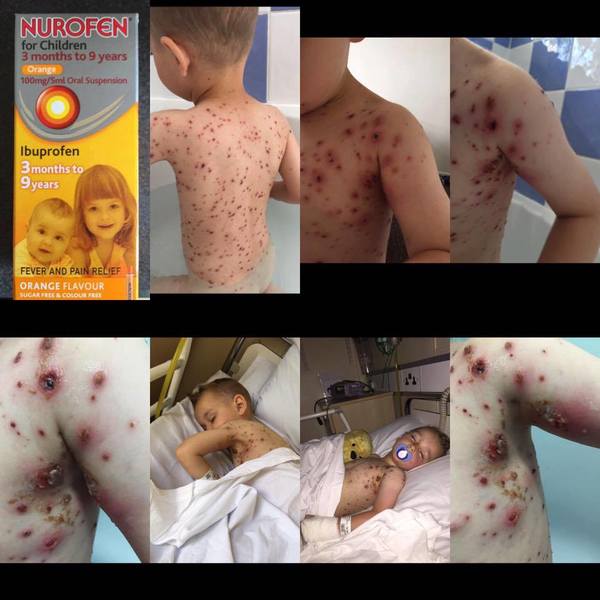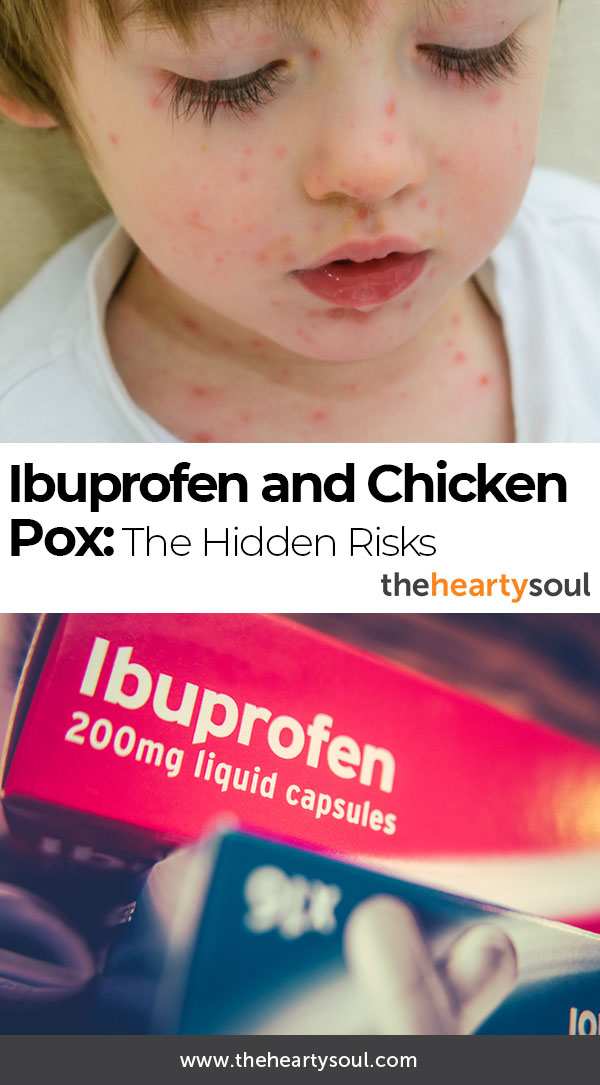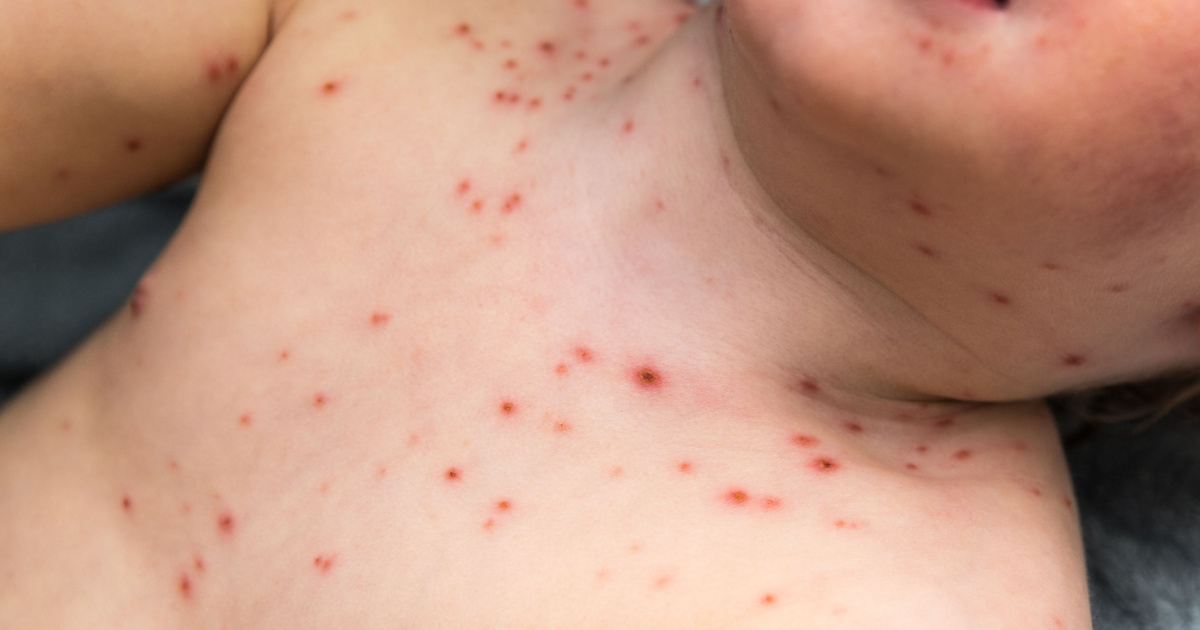This article was originally published on February 26, 2018, and has since been updated.
Chickenpox is very common (some might even consider it as a rite of passage), but there’s a serious risk many parents aren’t aware of, and it involves the use of ibuprofen to help relieve chicken pox. A mother who was advised to follow this recommendation from different doctors on her son’s chickenpox will tell you never to do it.
What Is Chickenpox?
If you’ve had chickenpox, you know that not only is the itch incredibly bothersome but it’s also such a hassle to deal with, not only for the person infected with it but also for the rest of the family. They’re either helping that person treat the virus or distancing themselves far away from them to avoid contracting it.
Chickenpox is a contagious infection that arises out of what’s called a varicella-zoster virus. It results in itchy skin rashes that turn into blisters over the course of several days. From there, the blisters pop into rashes before they heal.
Usually, symptoms start to appear within 10 to 21 days after contracting the virus from someone else, and recovery takes about two weeks.
Who Gets Them?
This contagious infection is most common among children, but adults get it, too. According to statistics, 90% of all cases involve young children, with those under the age of 2 being the most susceptible to contracting the infection. Furthermore, people are at higher risk if:
- They haven’t had the virus before
- They work in a school or childcare facility
- They live with children
How Does It Spread?
Since it’s extremely contagious, you get the virus by breathing in particles of chickenpox blisters or even touching something where the particles landed. When someone has chickenpox, they’re highly contagious 1 to 2 days before the rashes appear.
Ibuprofen Worsened This Child’s Chickenpox
We all know that the feeling of irritation from chickenpox is quite unbearable, especially for children who are tempted to scratch their bodies just to soothe the itch. Not only that, but other symptoms also persist, like a fever. As parents, we try our best to minimize the physical pain our children face when they have this infection, so when a doctor prescribes medicine that can help them, we’re quick to listen.
In 2016, Haley Lyons from Warrington, England, did precisely that when four different doctors recommended that her son Lewis take ibuprofen to help with his high fever that emerged from having chickenpox. It turned out to be horrible advice because her son’s condition severely worsened.
Haley rushed him to the hospital after getting a serious infection called septicemia caused by the ibuprofen. Only when she took Lewis to Alder Hey Children’s Hospital did she learn that ibuprofen should never be taken to relieve the symptoms of chickenpox.

In an older but still relevant 2016 Facebook post Haley wrote:
“Chickenpox is going round again. Can I please remind people NOT to give your children nurofen/ibuprofen..
4 different doctors from our local prescribed it for Lewis as we couldn’t get his temp down. This type of medicine is an anti inflammatory, it reacts with chickenpox making them go deeper into the skin tissue.
It was only when we took Lewis to Alderhey because the doctors from our hospital kept sending him home saying it was ‘just chickenpox’ that we found this out.
He ended up with septicaemia and was admitted straight to Alderhey as soon as we arrived there.
Only because we persevered and took Lewis to a children’s hospital was he OK.This could have ended up so much worse if it wasn’t for those doctors at Alderhey and their advice, care and knowledge.
Only use CALPOL (a medicine that doesn’t contain paracetamol) for their temps. It does actually state on the nurofen website not to take this medicine with chickenpox. (We discovered this after it happened). But when our doctors prescribe it, who are we to question it??”

Why Taking Ibuprofen is Dangerous When You Have the Chickenpox
Ibuprofen is an anti-inflammatory medicine that can make chickenpox go deeper into the skin tissue. According to a journal article in the British Journal of General Practice by Annabel Gilbert, nonsteroidal anti-inflammatory drugs (NSAIDs) should not be used in children with varicella because they increase the risk of severe skin and soft-tissue complications. (1) The American Academy of Pediatrics also recommends avoiding treatment with ibuprofen if possible because it has been associated with life-threatening bacterial skin infections. (2)
The specific reasons as to why this happens are unknown, but one possible explanation is that when NSAIDs like ibuprofen enter the body to reduce inflammation in response to chickenpox, the body’s ability to fight off infections on the skin gets reduced, too. As a result, bacteria can highjack that vulnerability and cause skin damage like what happened to Lewis.
It should be noted that aspirin and aspirin-containing products should be avoided due to the risk of Rye’s syndrome- a severe disease that affects the liver and brain and can cause death (3)
Safest Ways to Deal With Chickenpox Related Symptoms
Now that you know the risks of ibuprofen and aspirin, you may be wondering- how do you deal with pain and fever? According to the CDC, if you have a high fever or are experiencing achiness, you can use acetaminophen (Tylenol) to relieve those symptoms. It’s a safe medication even for pregnant women and children over two months old.
As for the itchiness, try your hardest not to scratch them because doing so might cause a bacterial skin infection. Here are a couple of ways to calm the itchiness:
- Tap or pat the itch
- Take a cool oatmeal bath and dab or pat the skin dry
- Wear loose, cotton clothing so your skin can breathe and not get further irritated
- Dab calamine lotion on your itchy spots
- Try an antihistamine like Benadryl to ease your symptoms
Conclusion
Use the safe treatments we mentioned when dealing with chickenpox and stay hydrated to get rid of the virus faster. If you notice that you aren’t recovering from this infection, visit your doctor. Hayley is certainly thankful that she went to the hospital to get her son checked or else things could’ve gotten worse. She warns others what happened to her son and to avoid taking ibuprofen at all cost.

Keep Reading: 14 Rashes You Need to Know: Common Dermatologic Diagnoses
Sources
- “NSAIDs and chickenpox.” NCBI. Annabel Gilbert. June 2016.
- “Chickenpox (Varicella).” CDC
- “Chicken pox & ibuprofen: what you need to know.” Net Doctor. Dr Ranj Singh. April 2016
- “Mom hears son crying from fever and discovers red bumps: Suddenly realizes doctor’s fatal mistake.” Newsner. February 21, 2018.
- “Mum’s shocking Facebook post shows why you should never use ibuprofen to treat your child’s chicken pox.” Mirror. Emma Gill. April 8, 2016.
This article was originally published on February 26, 2018, and has since been updated.
Disclaimer: This information is not intended to be a substitute for professional medical advice, diagnosis or treatment and is for information only. Always seek the advice of your physician or another qualified health provider with any questions about your medical condition and/or current medication. Do not disregard professional medical advice or delay seeking advice or treatment because of something you have read here.

